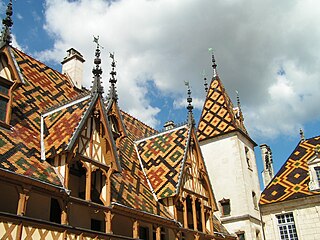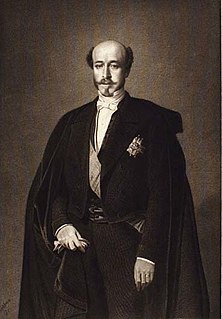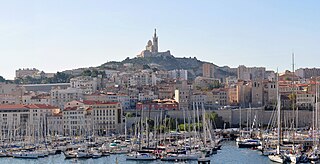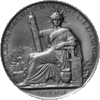
Camille Hyacinthe Odilon Barrot was a French politician who was briefly head of the council of ministers under Prince Louis Napoleon in 1848–49.
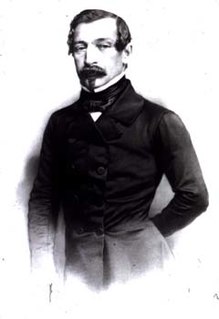
The French coup d'état of 2 December 1851 was a self-coup staged by Prince Louis-Napoléon Bonaparte. It ended in the successful dissolution of the French National Assembly and the subsequent re-establishment of the French Empire the next year. When he faced the prospect of having to leave office in 1852, Louis-Napoléon staged the coup in order to stay in office and implement his reform programs; these included the restoration of universal male suffrage. His political measures, and the extension of his mandate for 10 years, were popularly endorsed by constitutional referendum. A mere year later, the Prince-President reclaimed his uncle's throne as Emperor of the French under the regnal name Napoleon III.
Charles Émile Joseph Léon Ferry was a French politician.

Napoléon, comte Daru, was a French soldier and politician.

Louis Napoléon Auguste Lannes, 2nd duc de Montebello was a French diplomat and politician.

Jules Miot (1809–1883) was a French republican socialist who participated in the French Revolution of 1848 and in the Paris Commune of 1871. He was also a member of the First International.

Napoléon Alexandre Louis Joseph Berthier, 2nd prince of Wagram was a French politician and nobleman. Son of Louis-Alexandre Berthier, 1st Prince of Wagram, and Duchess Maria Elisabeth in Bavaria.

Paul Henri Ernest de Royer was a French lawyer, magistrate and politician. He was Minister of Justice in 1851 under the French Second Republic, and again from 1857 to 1859 under the Second French Empire.
René François Élisabeth Tiburce de Thorigny was a French lawyer and politician who was appointed Minister of the Interior in the last cabinet of the French Second Republic.
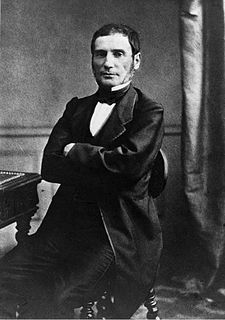
Ariste Jacques Trouvé-Chauvel was a French businessman, banker and politician. He was briefly Minister of Finance towards the end of 1848.

Adrien Barnabé Athanase Recurt was a French doctor who became a representative in the Constituent Assembly of the French Second Republic, Minister of the Interior and then Minister of Public Works.
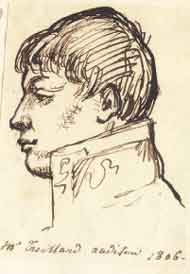
Achille Libéral, count Treilhard was a French lawyer and administrator. He was briefly Prefect of Police in Paris in 1830.
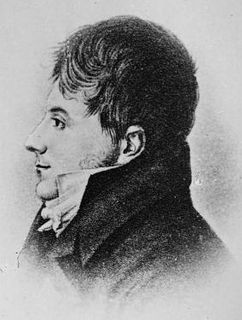
Jules Jean Baptiste Anglès was a French politician who was Minister of Police for a short period in 1814.

Démosthène Ollivier was a French businessman and politician. He was a staunch democrat and Republican, and was opposed to the Bourbon Restoration and the monarchy of Louis Philippe I. In the 1830s he was a friend of the Italian nationalist politician Giuseppe Mazzini. He was elected to the Constituent Assembly after the revolution of 1848. He protested the 1851 coup by Prince Louis Napoleon, and was forced into exile. His son Émile Ollivier became a prominent politician, and Démosthène Ollivier was allowed to return to France in 1860.
Jean-Jules Clamageran was a French politician of the French Third Republic. He was briefly minister of finance in the ministry of Henri Brisson. He was made a life senator in the Senate of France in 1882.

Adrien Joseph Prax-Paris was a French politician who was a Bonapartist deputy for Tarn-et-Garonne during the Second French Empire and the French Third Republic.

Émile Joseph Marie Piétri, known as Joachim Pietri, was a French lawyer and public servant who was prefect of several departments, a repressive police chief of Paris in the last years of the Second French Empire and Bonapartist Senator of Corsica from 1879 to 1885.

Edme Viala Charon, Baron Charon was a French soldier who rose to the rank of Field Marshall. He was briefly Governor General of Algeria during the French Second Republic, and was a senator of France for most of the Second French Empire.

Félix Jean-Baptiste Chadenet was a French lawyer, civil servant and politician who twice represented the department of Meuse in the legislature. He had right wing views and supported Prince Louis-Napoleon before and after the 1851 coup that established the Second French Empire.




